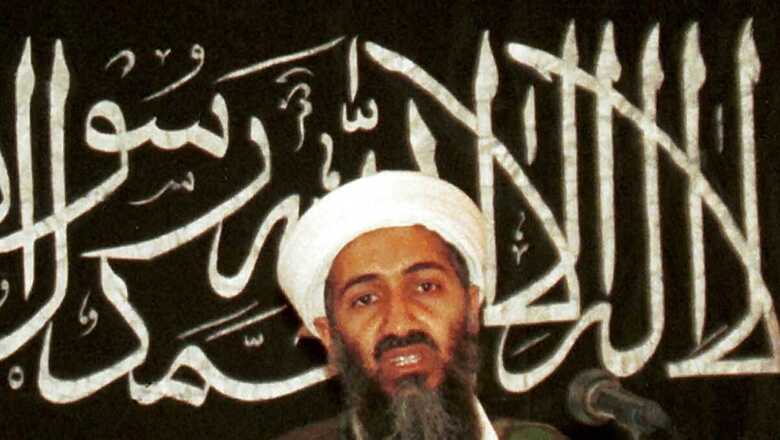
views
Osama bin Laden’s “Letter to America,” which surfaced on the controversial video-sharing app TikTok, has ignited a heated debate about US support for Israel amid its war in Gaza. TikTok now bans content promoting Al-Qaeda leader’s 2002 letter justifying attacks on Americans, addressing concerns arising from the ongoing conflict in the Middle East.
However, a fiery debate over the 20-year-old letter has spread on the platform this week in the wake of the Israel-Hamas war. Bin Laden was the mastermind of the 9/11 attacks that killed nearly 3,000 people by crashing passenger jets into the World Trade Center in New York and the Pentagon. After nearly 10 years as the world’s most wanted man, he was tracked down and killed by US special forces at his compound in Pakistan in 2011.
What’s the controversial ‘Letter to America’?
The letter, which was written after al Qaeda attacked the United States, criticised US support for Israel, accused Americans of financing the “oppression” of Palestinians, and contained antisemitic comments. It also denounces what he described as Western “lies, immorality and debauchery” and argued that attacks against civilians and the United States were justified as a result.
“Content promoting this letter clearly violates our rules on supporting any form of terrorism,” TikTok said in a statement, adding that reports that it was “trending” on the platform were inaccurate. A search for “Letter to America” on TikTok surfaced no results on Thursday, with a notice that said the phrase may be associated with “content that violates our guidelines.”
The origin of the trend has been pinned by various media outlets on a video posted Tuesday by a TikTok influencer with 12 million likes on her profile. “I need everyone to stop what they’re doing right now and go read — it’s literally two pages — go read ‘A Letter to America’,” the unnamed influencer was quoted as saying by AFP.
The letter has been received with widely positive comments by social media users with trending searches on TikTok, according to the French agency. However, the controversial platform insisted that the number of videos involved was small and that “reports of it trending on our platform are inaccurate.”
How the US Reacted
US lawmakers have called for a ban on the Chinese-owned app and had renewed their criticisms before Thursday’s announcement. Democratic Representative Josh Gottheimer said on Wednesday on X, formerly Twitter, that TikTok was “pushing pro-terrorist propaganda to influence Americans.”
Watch below to see how China-owned TikTok is pushing pro-terrorist propaganda to influence Americans.These people are sympathizing with Osama bin Laden – the terrorist responsible for 9/11 and thousands of American deaths.
TikTok must be banned or sold to an American company. https://t.co/GOvnBZjXt4
— Rep Josh Gottheimer (@RepJoshG) November 16, 2023
The White House sharply criticised the online phenomenon and TikTok said it was taking measures to remove the posts involved. “There is never a justification for spreading the repugnant, evil, and antisemitic lies that the leader of al Qaeda issued just after committing the worst terrorist attack in American history,” WH spokesperson Andrew Bates said in a statement on Thursday.
The White House said, “no one should ever insult the 2,977 American families still mourning loved ones by associating themselves with the vile words of Osama bin Laden.” “Particularly now, at a time of rising antisemitic violence in the world, and just after Hamas terrorists carried out the worst slaughter of the Jewish people since the Holocaust in the name of the same conspiracy theories,” it added.
Guardian Removes bin Laden’s letter
On Wednesday, The Guardian removed the full text of bin Laden’s letter, which it had published in 2002. The news outlet said on its website that the letter was being shared on social media without full context and that it would instead direct readers to the news article that originally reported on the letter.
TikTok said previously its recommendation algorithm does not push certain content to users, and that the company has removed hundreds of thousands of videos since October 7 for violating policies against misinformation and promotion of violence. Several internet observatories have time and again said that it is difficult to gain a full understanding of how prevalent certain content is on TikTok, partly because external researchers have limited access to its data.
(With agency inputs)




















Comments
0 comment